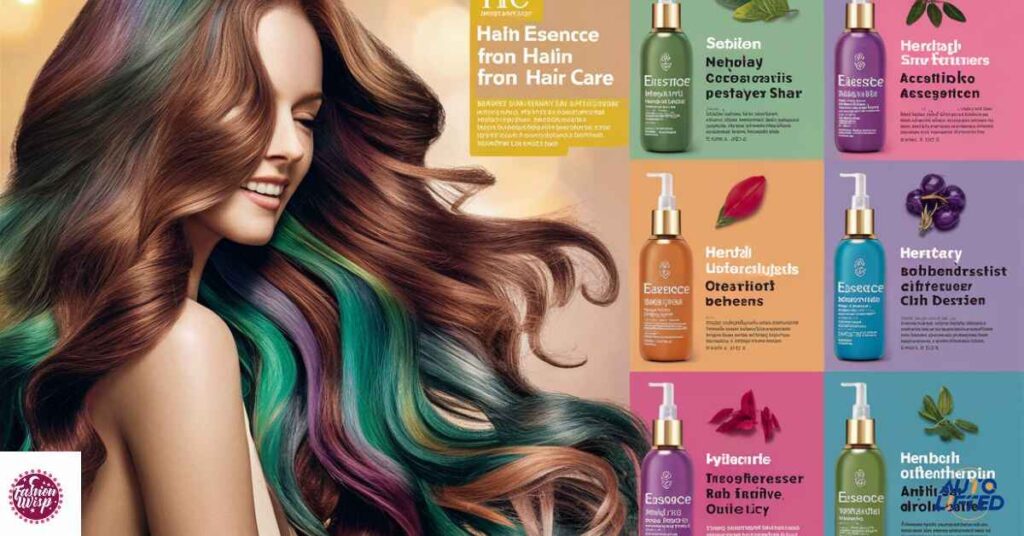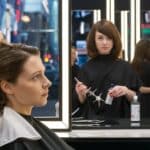Herbal Essences is a household name in the hair care products industry. With its alluring scents and natural ingredients claims. Their shampoos and conditioners line the shelves of stores worldwide. But amidst the catchy marketing slogans, you may find yourself wondering. Herbal Essence genuinely good for hair health.
This in-depth article aims to provide an unbiased analysis by examining the brand’s formulations. Efficacy potential concerns and consumer feedback. From beneficial botanicals to controversial additives. we will uncover what truly makes Herbal Essences products shine or struggle. When it comes to taming your tresses.
What is Herbal Essences?
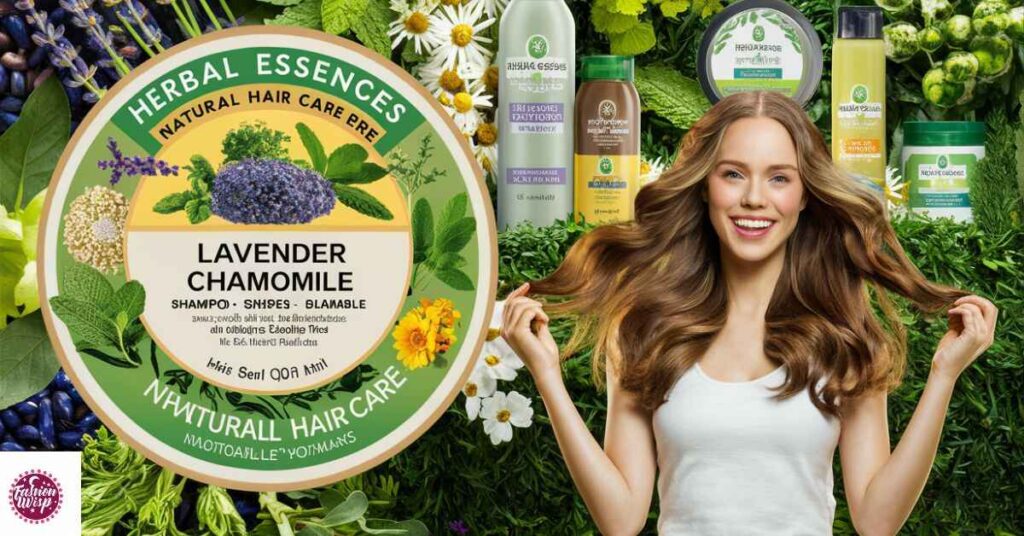
Herbal Essences traces its origins back to 1971 when Clairol introduced the original “Herbal Essence Shampoo.” A green hued formula aimed to capture nature’s essence. In 2001, Procter & Gamble acquired the brand and expanded its reach globally with their “Real Botanicals. Real Results.” promise.
Today, Herbal Essences offers a diverse range of hair care products infused with plant extracts and essential oils. From shampoos to conditioners, stylers to treatments – each lineup caters to specific hair types and concerns like moisture, repair, color protection, and volume. With over 80 distinct product offerings, they’re a mainstream giant in the botanical haircare realm.
Read This Blog:
Is Aussie Good For Your Hair
But what exactly sets Herbal Essences apart. Their products leverage popular natural ingredients like coconut, honey, aloe and argan oil ingredients. That have been used for centuries in hair remedies across cultures. By formulating with these recognized botanicals. Herbal Essences taps into age-old hair care wisdom…with a modern, mass-market twist.
Ingredient Analysis: The Good

Many Herbal Essences formulations contain botanically-derived ingredients lauded for their hair benefits. Here are some key ones to look out for:
- Argan Oil: Rich in vitamin E, antioxidants and fatty acids, argan oil can help protect hair from oxidative damage while adding luxurious shine. A 2015 study even found it more effective than mineral oil at increasing hair’s elasticity.
- Aloe Vera: The gooey aloe plant is packed with vitamins, enzymes, minerals and anti-inflammatory compounds. Studies suggest aloe vera promotes collagen and elastin production, potentially enhancing scalp health and reducing shedding.
- Coconut Oil: A deep conditioning powerhouse, coconut oil’s small molecular size allows it to penetrate the hair shaft, reducing protein loss and preventing breakage from the inside-out.
- Honey: Packed with nutrients, antioxidants and humectant properties, honey can hydrate and soften strands while imparting a glossy shine.
Amber, 26, raves about Herbal Essences’ coconut-infused line. It left my hair so silky and manageable, I could literally run my fingers through the knots without any struggle. The tropical scent was heavenly too.
Ingredients to Avoid
However, not all Herbal Essences ingredients garner such praise. Several synthetic components raise eyebrows for potentially compromising hair and skin health:
Sulfates While sulfates like Sodium Laureth Sulfate create that luxurious, bubbly lather we all love, they can also strip away natural oils. Over time, this leaves hair dry, brittle and prone to breakage.
Ironically, the very surfactants that “clean” hair may actually accelerate its damage. Many folks transitioning to sulfate-free routines report softer, bouncier locks as a result.
Synthetic Fragrances The generic “fragrance” or “parfum” listings are a cocktail of undisclosed chemicals, some of which may cause allergic reactions, skin irritation or even disrupt hormones according to research.
While Herbal Essences’ iconic scents like “Totally Twisted” are nostalgic for many, the fragrance blend itself is shrouded in mystery. For those with sensitivities, these undetermined additives could potentially derail an otherwise botanical-rich formula.
Preservatives
- Methylisothiazolinone: Linked to cell death and inflammation in studies, this preservative’s impact is still being researched.
- Methylchloroisothiazolinone: Multiple medical reviews advise avoiding products with this preservative due to its sensitizing potential.
It’s like choosing between savoring a fresh fruit smoothie or chugging a chemical milkshake – one undoubtedly feels lighter and more energizing on your body and spirit.
While preservatives are necessary for product shelf-life, there’s a growing consumer demand for cleaner alternatives to these controversial ingredients.
Herbal Essences Product Lineups
With over 20 different collections, Herbal Essences aims to cater to every hair type and concern under the sun. Let’s explore some noteworthy lineups:
For Moisture & Dryness:
- Coconut Milk & Shea Butter: Quenches parched strands with coconut milk and ultra-nourishing shea butter emollients.
- Hello Hydration: Infused with powerhouse humectant hyaluronic acid for intense, long-lasting hydration.
For Damage & Repair:
- Bond Repair: Featuring quinoa protein and plant-derived keratin to reconstruct and re-link broken bonds within hair’s structure.
- Argan Oil of Morocco: Replenishes and fortifies strands with Moroccan argan oil’s antioxidant richness.
For Color Protection:
- Color Me Happy: Specially formulated to lock in hair color vibrancy using hydrolyzed wheat protein to seal in pigment.
For Volume & Fine Hair:
- White Grapefruit & Lychee: Invigorates limp roots with a refreshing citrus-floral fragrance and lightweight volumizing formula.
- Uplifting Volume: Plumps up fine, flat hair with body-boosting polymers for long-lasting, touchable lift.
They also offer silicone-free and sulfate-free options like their “Aloe & White Tea” line for those avoiding buildup or allergic to common haircare additives.
Also Read This Blog:
How To Make An Old Fashion
What Consumers Are Saying
With such a diverse range, it’s no surprise that Herbal Essences elicits mixed reviews from consumers:
I have been using the Totally Twisted line for years – it defines my curls beautifully without any crunchiness! My hair smells amazing too. Keira, 32
The Hello Hydration range is so affordable yet works better than high-end masks for bringing life back to my over-processed hair. – Jada, 28
My hair felt hydrated at first but then got dried out. Might have been due to the sulfates or something. It also seemed to cause more shedding for me. – Marcus, 35
I wanted to love these products for their scents, but they made my scalp so itchy and irritated. Maybe too many harsh ingredients for my sensitive skin. – Emma, 41
While many rave about the pleasant aromas, hydrating formulas and budget-friendly pricing, others complain of dryness, irritation and excessive buildup or shedding over time. Hair’s reaction can depend on its porosity, texture and individual sensitivity.
The Herbal Essences Lawsuit Explained
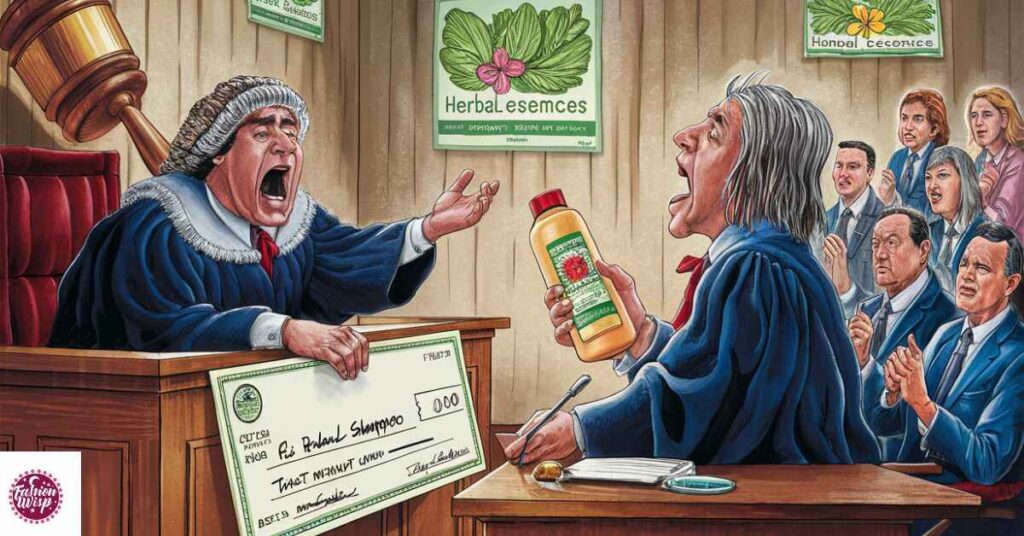
In 2021, Herbal Essences faced a class-action lawsuit alleging some products contained potentially carcinogenic benzene – a chemical not listed on ingredient labels.
Benzene is an organic compound classified as a human carcinogen, meaning its excessive exposure is linked to an increased risk of leukemia and other blood cancers. The plaintiff claimed Herbal Essences misled consumers by marketing products as “natural” and formulated with “trusted ingredients” despite containing this synthetic contaminant.
The situation prompted widespread recalls of affected products by Procter & Gamble to “avoid potential health risks.” However, the current lawsuit status remains unclear, with both parties claiming partial victories according to legal reports.
Regardless of the eventual outcome, the debacle underscores the importance of complete transparency and accountability from brands around ingredient listings – especially for those promoting a “natural” image built on consumer trust.
Alternative Natural Hair Care Brands
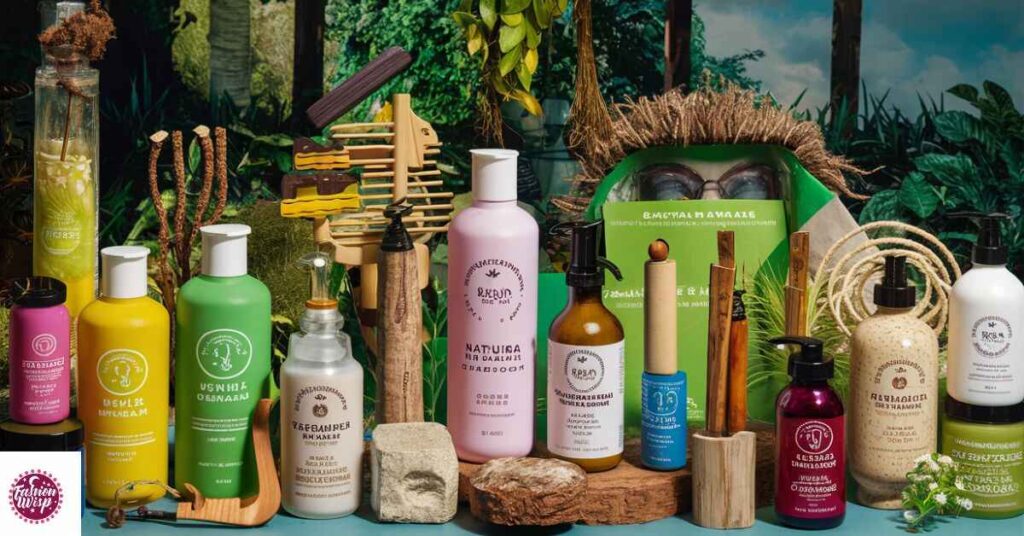
For those seeking a completely synthetic-free experience with transparent formulations, here are some Herbal Essences alternatives that use plant-based ingredients:
- Ingreendients Daily Shampoo: Made from 100% botanical oils like coconut, avocado and olive. No water, sulfates or silicones – just concentrated plant power.
- Acure: Certified vegan and free of sulfates, parabens, phthalates and synthetic fragrances. Their products harness ingredients like morocco argan stem cells and blackberry.
- True Botanicals: A luxury clean haircare line utilizing bioactive botanicals like green tea, aloe, brassica and calendula extracts. Pricey but devoutly natural.
- Rahua: Featuring handcrafted Amazonian ingredients like rahua nut oil and ungurahua golden orchid. Sustainable sourcing from indigenous communities.
While more expensive, these types of truly natural, “green” brands allow you to avoid any synthetic ingredients entirely if that’s your goal.
Is Herbal Essence a Good Choice for Your Hair?
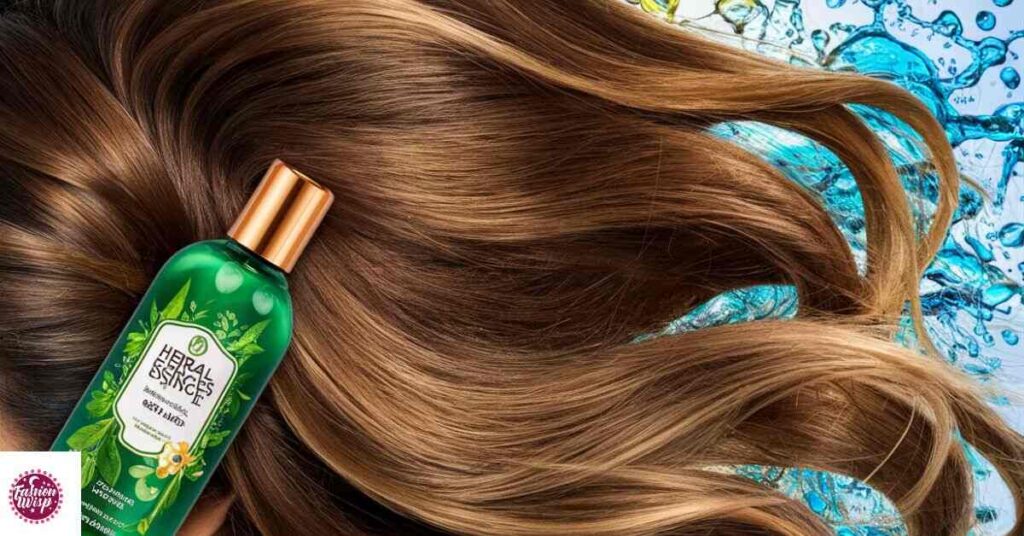
Like many mainstream haircare brands, Herbal Essences has both positive and negative attributes to consider when adding it to your routine.
The Pros:
- Affordable pricing makes botanical haircare accessible to mass consumers
- Diverse product offerings cater to all hair types, textures and concerns
- Many formulas utilize proven plant extracts and oils with research-backed benefits
- No animal testing and some vegan/gluten-free options available
- Iconic natural scents provide an enjoyable sensory experience
The Cons:
- Includes some controversial synthetic ingredients like sulfates and preservatives
- “Fragrance” listings may contain undisclosed irritants or hormone disruptors
- Potential for dryness, buildup, shedding or irritation in some consumers
- Questions around full ingredient transparency after the benzene lawsuit
- Not a fully “clean” brand for those strictly avoiding any synthetics
Herbal Essences haircare suits you depends on your individual needs, sensitivities and priorities. If botanical-based formulas are important but you’re not strictly vegan or avoiding all synthetics, the brand provides affordable options with real plant extracts…with some caveats.
It is best to scrutinize ingredient lists and perform a patch test before using any new product to check for adverse reactions. Listen to your hair – if it responds well to Herbal Essences’ botanical blends, it can certainly be a good, budget-friendly choice! Those with very sensitive scalps or a “clean” philosophy may want to explore alternative natural brands.
Tips for Healthy Hair with Herbal Essences
If you do choose to incorporate Herbal Essences into your hair care routine, consider these tips for maximizing botanical benefits while minimizing potential irritation:
- Rotation is key – Avoid using the same product every day to prevent buildup. Rotate through different lines and take breaks.
- Focus on targeted treatments – Use gentler, sulfate-free co-washes or low-poo cleansers frequently. Then use botanically-rich masks, oils or stylers as needed for added nourishment.
- Do the scratch test – Before a full application, do a patch test behind your ear or along your hairline to check for irritation. Discontinue use if reactions occur.
- Consider your hair’s porosity – Those with high porosity may experience more dryness from sulfates or protein ingredients. Low porosity may mean increased buildup.
- Be consistent – While ingredients are crucial, overall hair health also depends on your full routine of cleansing, conditioning, protection and styling practices.
With some thoughtful adjustments, you can likely find an effective Herbal Essences regimen tailored to both your hair needs and ingredient sensitivities.
A Focus on Haircare Sustainability
Another growing concern for conscious consumers is a brand’s environmental footprint and sustainability practices. How does Herbal Essences measure up?
On the positive side, Procter & Gamble aims for all brands to be “Sustainably Sourced” by 2030 with ethical practices like renewable ingredients and Fair Trade partnerships. Many Herbal Essences bottles are also made from recyclable plastic.
The brand still uses synthetic ingredients that contribute to water pollution and their products are not certified organic. As a mainstream brand under a massive corporation, their operations likely have larger environmental impacts compared to small-batch botanicals companies.
For those prioritizing sustainability along with clean ingredients, independent brands like Rahua and True Botanicals may be more aligned. But Herbal Essences is certainly taking steps in a more eco-friendly direction given its affordability and scale.
Frequently Asked Question
Is Herbal Essence good or bad for your hair?
Herbal Essences can be good for your hair, offering affordable, nourishing options, but its effectiveness varies by individual hair type and sensitivity.
What are the disadvantages of Herbal Essences shampoo?
Disadvantages include potential irritation from sulfates and synthetic fragrances, build-up from silicone-heavy options, and limited ingredient transparency.
Is Herbal Essence free from chemicals?
No, Herbal Essences is not entirely chemical-free; it contains both natural ingredients and chemicals like sulfates and preservatives.
Is Herbal Essence 100% natural?
Herbal Essences is not 100% natural; it includes synthetic ingredients along with natural botanicals in its formulations.
Is Herbal Essences a clean brand?
While Herbal Essences offers sulfate-free and cruelty-free options, it is not entirely classified as a “clean” brand due to the presence of certain synthetic ingredients.
Conclusion
In the vast and evolving hair care landscape, Herbal Essences occupies a unique space by infusing botanicals like plant oils, herbs and extracts into affordable, mainstream formulas. While not 100% natural or organic, their blends do utilize researched ingredients that can truly benefit hair health, texture and appearance.
The brand’s “free-from” labeling and “ingredients you can trust” taglines don’t entirely hold up under scrutiny. Many Herbal Essences products still contain controversial additives like sulfates, preservatives and non-transparent “fragrance” that some consumers may wish to avoid based on emerging science.
The recent benzene lawsuit debacle also raises ongoing transparency issues that a brand promoting ingredient trust should aim to address definitively through stricter sourcing and testing standards.
Any hair care purchase, being an educated consumer is key. Carefully assess your hair’s needs and sensitives versus Herbal Essences’ detailed ingredient listings. Decide if their affordable botanical bang is worth the potential synthetic trade-offs, or if a smaller “cleaner” brand is a better fit for your values and haircare philosophy.
With some due diligence into formulations, many can certainly find a Herbal Essences regimen that works seamlessly into their natural hair care routine without compromising health. For others, the lingering presence of controversial additives may be a deal-breaker despite the real botanical benefits.
The bottom line, There is no one-size-fits-all answer. By being an informed, intentional consumer, the iconic green bottles could be a gentle, enjoyable and budget-friendly way to get your hair’s nature fix…or not. The choice, as always, is yours.

